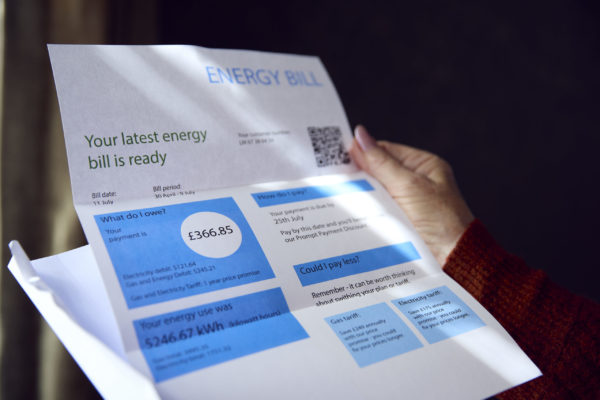In new research published today, we find that youth clubs are spending as much as 50% of their budgets just to pay energy and water bills, putting vital community services at risk. This shocking finding comes at the start of so-called ‘awful April’ with prices of energy, water and more all set to rise.
The full report outlines seven policy recommendations for government to support the youth sector, reduce energy costs and accelerate the transition to clean power.
Ballooning costs
The research finds that not only are costs adding crushing weight to charities, but that small youth organisations are particularly vulnerable to these rising costs and lack the support needed to safeguard their services.
In response to the report, Aidan Jones, CEO of Scouts, said “Scout groups from all over the country have told us about the pressure that rising energy bills are putting on their budgets. Groups are doing everything they can to keep activities affordable, but with prices continuing to rise, we want to see greater support for charities and voluntary groups to ensure young people don’t miss out.”
Margate Sea Cadets is one group which has had to allocate 49% of their budget just for utility bills. The group has served local youth for more than 100 years and provides activities for young people aged 9-18 including rowing, sailing, adventure activities and parades.
Paul Holton, Chair of Margate Sea & Royal Marine Cadets told us, “Local youth provision here is under risk from rising bills and funding cuts, some on the brink of closure. It’s very demoralising. If bills were lower we could focus on giving young people the best activities to progress their training and build their confidence.”
Investment brings huge change
The Youth Investment Fund, delivered by Social Investment Business in partnership with the National Youth Agency (NYA), Key Fund and Resonance, has helped to transform youth facilities across England, and as a result improve energy efficiency and drive down bills.
A brand new, state-of-the-art Scout HQ in Sheffield is one of over a hundred youth facilities built with this government grant funding. The new centre is equipped with solar panels, a heat pump and battery storage, and was designed to be a Net Zero building, providing a fresh space for their thriving group. A long way from their previous 60-year-old scout hut, which was falling apart, with no insulation and expensive to heat.
Action is needed
There is desire within the youth and community sector to become leaders in the transition to clean heat and power, indeed many are working with young people passionate about creating a more sustainable future. Yet without additional support, efforts to decarbonise come at the expense of their vital services, at a time when they’re already burdened with unsustainable utility bills.
Our report outlines seven policy recommendations for government to safeguard the vital work of the youth sector, reform energy pricing to lower bills and provide support which could accelerate the transition to clean power in the sector.





